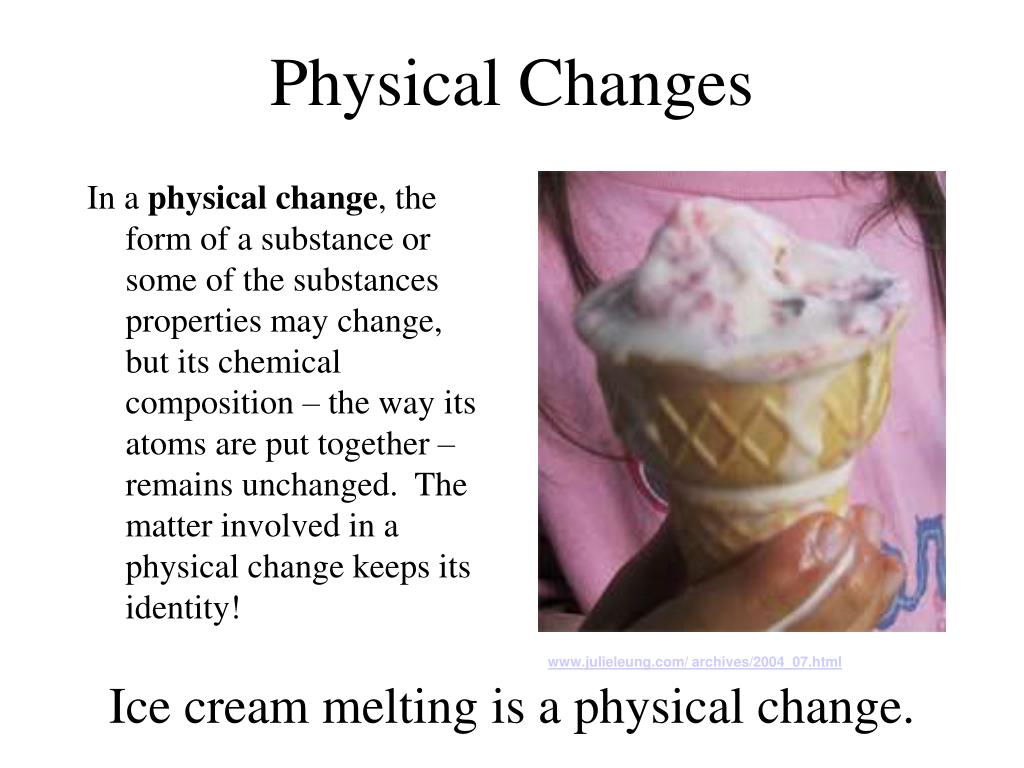Featured
Physical Or Chemical Change Ice Melting
Physical Or Chemical Change Ice Melting. Physical because none of its chemical property's are not changed. About press copyright contact us creators advertise developers terms privacy policy & safety how youtube works test new features press copyright contact us creators.

The water molecules are still water molecules. The change cannot be “undone. The change takes place only in terms of physical appearance without affecting the chemical properties of a material or substance.
A Chemical Change Results From A Chemical Reaction, While A Physical Change Is When Matter Changes Forms But Not Chemical Identity.
The question is, “is this change reversible?” in. No chemical changes take place when we melt the ice. Melting of ice is a physical change because it involves change only in the physical state of water, from ice in the solid state to water in the liquid state.
Ice Has Become Water, But Both Ice And Water Are H2O.
Melting is the occurrence wherein a solid substance changes to a liquid state. It has not changed chemically. Physical changes that involve a change of state are all reversible.
Many Physical Changes Are Reversible, If Sufficient Energy Is.
Examples of chemical changes are burning, cooking, rusting, and rotting. Is it a chemical change when ice melts? The substances present at the beginning of the change are not present at the end;
Matter Is Capable Of Undergoing Changes, Which Are Classified As Either Physical Or Chemical.
Physical change is a completely reversible process or change. However, this change is only physical because the constituent molecules are the same: Is the chemical or physical change of salt melting ice?
Furthermore, No New Chemical Substances Are Created Throughout The Process, And The Transformation Is Reversible.
Physical because none of its chemical property's are not changed. When liquid water (h2o) freezes into a solid state (ice), it appears changed; A log burned in a fire turns to ashes, but the ashes cannot be changed back.
Popular Posts
Allergy Testing For Chemical Sensitivity
- Get link
- X
- Other Apps
Comments
Post a Comment